Should Individual Horse Owners Get Liability Insurance?
The question of insurance for horse owners is a very personal decision to make, often depending on the policy type, coverage, and budget.
Have you been considering insurance for your horse? What are the kinds of questions you should be asking yourself? Here's some useful information to help you make your decision – for you and your horse.
Do Horse Owners Need Equine Insurance?
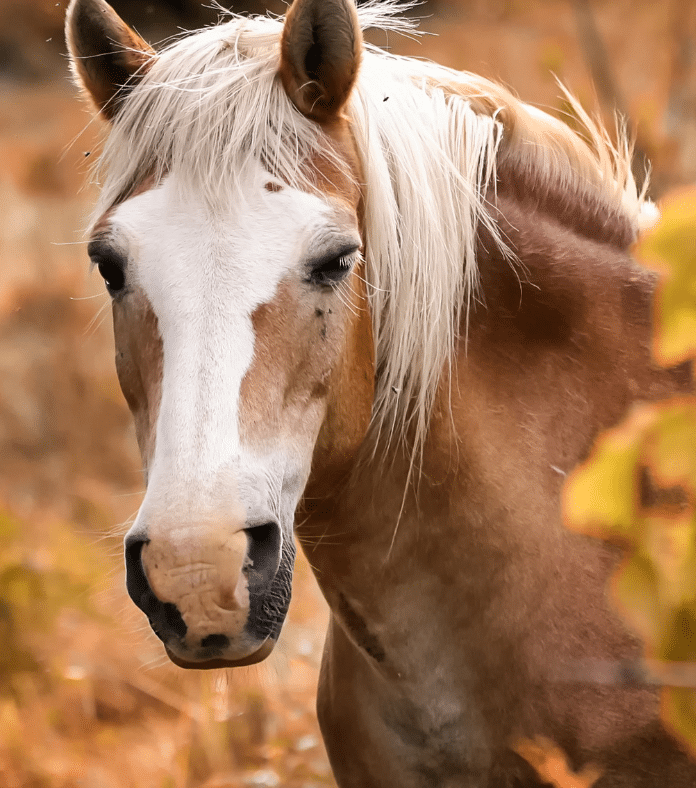
Equine insurance covers you for losses that include horse-related illness, accidents, and death. It can also cover medical costs, theft of equipment, and liability. Horse insurance will mean something different to everyone dealing with horses: owners, stable owners, breeders, and trainers, but each will understand the inherent risks of owning a horse and related equipment. In a small survey of Double D trailer owners, nearly 63% said they would recommend horse insurance. As 70% of the respondents answered that they often travel with their horse, this is not surprising.
What is Insurance and Who Offers It?
The answer might be obvious to some, but it’s good to know the standard definition:
Insurance is protection from financial loss. It is a form of risk management, primarily used to offset the risk of possible loss. Those offering this service are known as insurers, an insurance company, an insurance carrier, or an underwriter.
Insurance is a contract, called a policy, between you and an insurance provider. You can be compensated for certain losses under the policy, and for this service, you pay a fee called a premium. In exchange, the insurance company agrees to pay you a certain amount of money if what is covered happens during the time the policy is in effect.
The premiums you pay every month or yearly are pooled with those of other policyholders at your insurance company. This pooled money is then used to pay policyholders’ claims. Your insurance policy will likely include a deductible. You pay this money up front when you make a claim, and the insurer pays the rest once the claim is settled. If your deductible is high, your premiums may be lower.
Like any other type of insurance you purchase, don’t rely solely on the cost of the premiums to decide on the policy. You need to research different equine insurance policies, and while it may be tempting to simply gather a handful of quotes and pick the policy with the lowest premium, this is not recommended. It is also recommended that you search out a broker and not shop on the web for insurance, no matter how tempting, especially if it is your first time.
To get the insurance you need – and want - It’s best to seek out someone with experience in equine liability insurance. Work with an experienced professional who will take the time to explain your policy and answer your questions. A good broker will take the time to create a policy with coverages that fit your lifestyle.
Is Insurance the Right Decision for You?
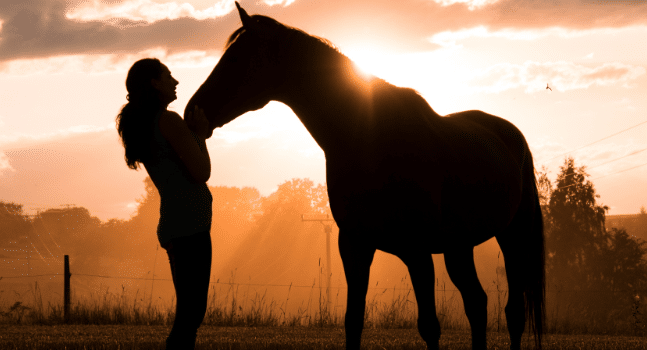
Let’s say you have saved up some money to buy a horse, and it costs $15,000. You’ve dreamed of this horse, and you see yourself riding it, or sharing it with your family for the next 25 to 30 years.
So, you buy the two-year old horse thinking you will have it for a long time. Two years later, and after serious investments for vaccines and other regular medical care, your horse is diagnosed with a deadly horse virus and must be euthanized. You are devastated.
Now reality sets in…you don’t have the money to buy another horse, yet your life has been organized around owning one. You may have had a small barn built and you may even have decided to belong to a local club. The loss is both emotional, and financial.
This is the value of insurance – it can’t replace the emotional bond with your beloved horse, but you will have the funds to buy another and continue your life with a horse., if you should decide to do so.
Insurance is a financial tool, and an important one. And at a reasonable cost, there is simply no reason not to have it. Now let’s look at the most common types.
Some Home-Owner Policies Can Cover Horse Liability
Horses that are kept at home all the time and never travel in a trailer are often covered by your homeowner’s or farm insurance policy. There are limits on how many horses you can own and what you’re doing with them though, depending on which policy you have in effect.
Homeowner’s Policy
Homeowner’s policies may cover horse liability when the horse is only used by you or your family and friends in a way that is strictly recreational. This means that the horse can’t be used in any way that might create a commercial value, such as breeding or professional competition. Your homeowner’s policy usually covers your horse’s misadventures should they end up causing an auto accident on a road adjacent to your property, but if you take your horse on the road and he gets loose when you flip your bumper pull horse trailer, your insurance won’t pay for the cars he kicked in his panic. These policies also typically limit the number of horses you can own.
Farm Owner’s Policy
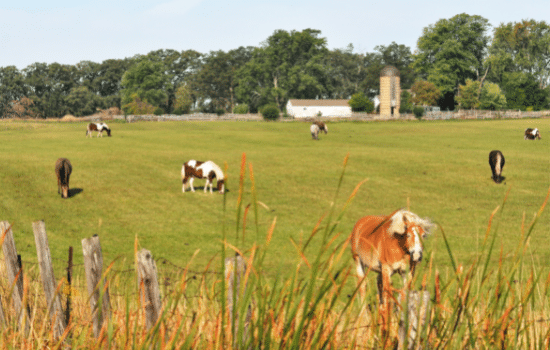
Speak to your insurance agent in detail and read your policy carefully before you assume your horse is covered under your farm policy, though -- it can be a very costly assumption if you’re wrong.
Private Horse Owner Liability Policies
If you board your horse, you probably already have a private horse owner liability policy in place, since most boarding facilities require this sort of coverage before they’ll accept a horse. These policies cover your horse’s antics no matter where they may be -- you can think of it as a policy that’s attached to your horse instead of to your home or farm. If you plan to take your horse on trail rides or off to visit friends, a private horse owner liability policy is recommended before you load him up.
These policies are great for people who rent or have no on-site facilities for their horses and must board them elsewhere. The catch is that your horse must be considered a hobby -- he can’t be used for income-generation if the private horse owner liability policy is going to cover your horse biting a kid at his next local horse show.
Specific Equine Insurance
If you have a very expensive horse, or if your horse or horses are used for commercial purposes such as breeding, you may want to consider very specific insurance, called equine insurance. The annual premiums are a small price to pay to offset the financial losses incurred if these horses were injured or killed in an accident. In fact, the horse doesn’t need to be of high value to be insured – it is quite surprising to see the number of $2500 horses insured. The “high value” can simply be emotional.
The basic equine insurance coverage purchased by most horse owners are mortality and major medical policies, which roughly correspond to life and health insurance for people. Depending on the policy, the owner may receive payment for the full or partial value of the horse.
-
Equine Mortality Insurance
This type of insurance covers the death of your horse due to an accident, an illness or injury. You can insure up to 100 percent of the value of your horse, but obviously, the more expensive the horse, the higher the premiums will be.
There may also be an age limit to your coverage. These policies may be difficult to secure after your horse has turned 16, but guaranteed renewal policies should help you get as much out of your policy as possible. Your premiums will be based on the value of your horse, taking into consideration his purchase price and bloodlines – and only once you’ve secured an equine mortality policy can you add major medical coverage.
It may also cover euthanasia but it’s wise to verify this type of information. Sometimes insurance can force you into a decision you might not have made otherwise, and they don’t cover everything. If you must suddenly put your horse down, you may need their permission to do so.
Your horse might also need some coverage, especially if you’re traveling with him a lot. After all, if he were to get sick from exposure to other horses or be hurt in an auto accident, the bills for his treatment could be insurmountable. This is where equine mortality policies come into play. Most of the time, your horse doesn’t have to die for them to pay, but you can’t get a medical policy by itself -- they’re always attached to equine mortality policies.
You can expect to pay premiums of anywhere from 2.5 percent to 4 percent of the horse’s value for mortality insurance.
Loss of Use
A variation on mortality coverage is called “loss of use”. A percentage of the horse’s value will be paid should an injury leave him permanently unable to perform as identified in the policy. But be sure to read the fine print: Many of these policies give the insurance company the right to take the horse from the owner after paying the claim, while some insurers offer a choice: a higher reimbursement amount if the insurer keeps the horse, or a lower amount if the owner keeps the horse. This type of policy is not recommended by horse owners who have chosen this type of policy without reflecting on the consequences. No one wants to see a beloved horse transported away by an insurance company, even if he is no longer able to jump or breed.
-
Major Medical Insurance
Medical and surgical policies cover the costs associated with treatment of an injury or illness. An owner can purchase mortality coverage alone, but medical and surgical policies are generally available only in combination with mortality. This insurance covers major medical and surgical costs for specific disorders. They may include colic treatment, tendon injury or laceration. If your horse gets sick or is hurt in an auto accident, the bills for his treatment could be very high.
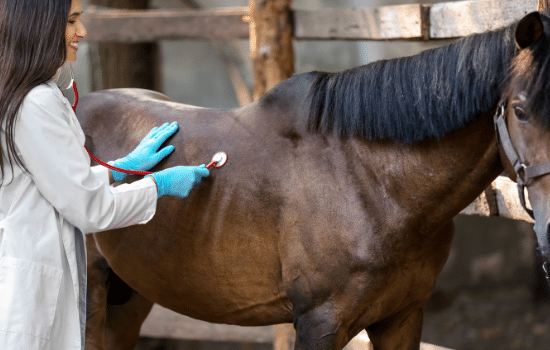
It is also possible to have a “surgical-only” policy, which typically covers only the costs of surgery and postoperative care. They don’t usually cover diagnostic work or hospital costs prior to surgery. This type is not as common as major medical, simply because the coverage is not as broad, and the cost savings are minimal.
Major medical riders aren’t for regular care such as vaccines and dental treatment, but if your horse becomes suddenly and severely ill or has a bad accident, you’ll be thankful you took out the coverage.
Annual premiums are determined by the policy limit you select:
-
A $5,000 limit averages $200;
-
A $7,500 limit is around $340;
-
A $10,000 is close to $450; and
-
A $15,000 limit is approximately $675.
On average, the deductible is $300.
-
Liability Insurance
This is coverage for accidental bodily injury or property damage caused by your horses. Additional liability coverage can be purchased for employees who work with horses or at competitions. If you board other peoples’ horses, you may be liable for these animals and for the damages they cause while in your care.
There is also liability insurance available for trainers, property, and liability coverage for farm owners, even insurance to cover a stallion’s or mare’s fertility.
One final note for all types of insurance: Consult your broker about any limits to the coverage, and the diagnoses or treatments that are listed on your policy before something happens. Make sure you completely understand the policy, and what to do when something happens.
Self-Insure
This is exactly what it sounds like – you put money away every year for a major emergency. As a $10,000 surgery is not uncommon, $800 to $1000 a year put into an insurance account will ensure that you have the required money when you need it. However, if the surgery or treatment exceeds this amount, or if the horse requires a treatment early in its life – and you haven’t had adequate time to accumulate enough - you may be in a very difficult position of deciding whether you can adequately treat the horse, or even whether you can afford to keep the horse alive.
It may be an option for certain people, but it requires discipline, and you must be comfortable managing the risks. However, the good news is that if your horse doesn’t require any major medical interventions, the money stays in your bank account.
The Claims Process
First, it’s always important to make sure you’re dealing with a reputable company.
Then, you need to understand what is expected of you, and under what circumstances. When filing a claim, timing is crucial. You don’t want to have to learn the fine points of the process during a crisis. Good communication is critical: Many insurers require that they be notified if a horse is injured or ill. If you’re in doubt about your claim, check the wording in your policy. It should spell out exactly how much time you have before you must file your report. However, there is typically no waiting period to present a claim once a policy is issued.
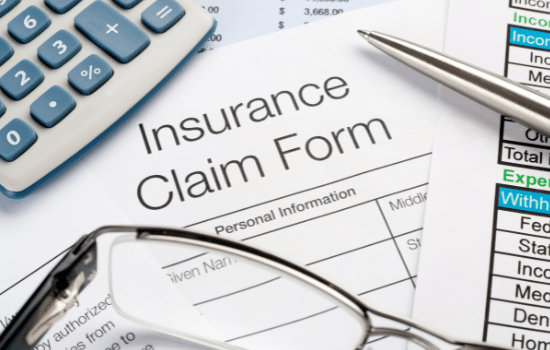 It’s better to be proactive rather than waiting months before informing your agent that your horse has been ill. If it’s serious enough to call your veterinarian, it’s usually wise to let your insurer know too. In fact, it’s a good idea to have your veterinarian speak with your insurer, if possible, while he is there tending to your horse. Of course, in an emergency, the animal’s best interest must be kept at heart, but there have been many sad stories of horses being put down without the insurer’s permission. Typically, a veterinary certificate is required if you’re getting full mortality coverage. However, a veterinary certificate may also depend on the requirements of your insurance company, and the value and health of your horse.
It’s better to be proactive rather than waiting months before informing your agent that your horse has been ill. If it’s serious enough to call your veterinarian, it’s usually wise to let your insurer know too. In fact, it’s a good idea to have your veterinarian speak with your insurer, if possible, while he is there tending to your horse. Of course, in an emergency, the animal’s best interest must be kept at heart, but there have been many sad stories of horses being put down without the insurer’s permission. Typically, a veterinary certificate is required if you’re getting full mortality coverage. However, a veterinary certificate may also depend on the requirements of your insurance company, and the value and health of your horse.
It is always a good idea to know exactly what you are expected to do in such a situation. Consider the time spent learning the fundamentals of your equine insurance policy as an investment.
Get the Equine Insurance That Brings You Peace of Mind
Is insurance right for you? It’s a big question, and there’s a lot to consider.
But just ask any horse owner who has had to make a serious medical decision regarding a life-and-death situation based on money – or the lack of it - and you’ll have your answer.
Most say that they are glad to have had insurance – the nice thing is that if you DO have a major issue (such as colic), there is no struggle to determine if you can afford a $10,000 surgery - you have insurance.
The bad thing - sometimes insurance can force you into a decision you might not have made otherwise, and they don’t cover everything. You will likely not have 100% control over certain aspects when your horse is insured – the insurance companies do have the last word when it comes to paying the claim. It pays to know what is covered, and what your responsibilities are. If it’s serious enough to call your vet, it’s serious enough to let your insurance agent know too.
Having a horse brings risks but the right equine insurance policy can help you manage at least some of the burden. When you consider all the costs associated with owning such an animal, the relatively reasonable cost of insurance should be one of your fixed expenses. Having insurance means you’ll sleep better, which means a good day of riding tomorrow!

